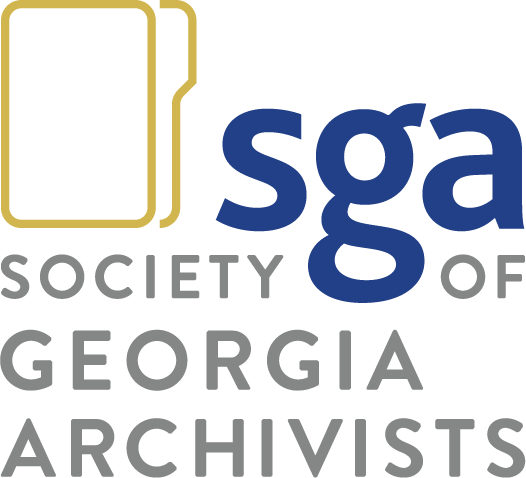


 |
Laura W. Carter
|
After using archival collections sporadically for many years, I had the opportunity to learn how to evaluate, arrange, describe, catalog, box and handle archival records in 1997 when I became Heritage Room Librarian at the Athens-Clarke County Library. Of course, I had no idea about all these terms and what they meant when I started. Having worked in many other areas of the public library since 1974, I found I had to go back to school to learn how to deal with both types of collections. I eventually went back to school getting a second Masters in Library and Information Science with a specialty in Archives and Manuscripts from the University of South Carolina. Since 1997 I have been involved in SGA serving on several committees, and trying to bring the perspective of a different type of user than many archives get to experience.
I have worked with the folks at University of Georgia libraries on events in Athens for Georgia Archives Month. I have tried to encourage users to expand their horizons and utilize academic collections, government archives, and organizational archives.
As of July 31, 2012 I am retired and only working part-time.
Describe how SGA has influenced your development as a professional.
Upon realizing the vast difference between providing access to archival materials versus printed books, I called some folks at UGA Libraries to pick their brains. One of these folks suggested I join SGA and the rest, as they say, is history.
I attended my first SGA workshop at the Carter Center with great trepidation. I was intimidated by the topic and by the idea I had of the folks who would be attending. I was sure I was a fish out of water. Instead, I found some of the most helpful, fun, welcoming, enthusiastic, and knowledgeable folks I had ever worked with. Coming from a public library background which is also full of great people, this is saying A LOT!
The SGA annual conference and workshops have been the MOST useful meetings in keeping me informed about up-to-date issues in the field and providing practical advice about how to deal with various issues in archives. In our situation, I can rarely do all that is needed. But at least, with what I am able to do, I can lay the foundation for future “best practices” work.
The SGA Newsletter helps me keep up with what is going on in the state and the nation and with people in other Georgia facilities. Learning about the varied collections throughout Georgia’s archives has helped me send lots of people to the right place for the right information.
What advice would you give a student or individual considering a career in archives?
Join the state and any local archival organizations. Attend their meetings and conferences and read the professional literature. Most importantly, find a nearby institution with an archival collection and intern or just volunteer to work in it. Even if you do not get to start out working with and handling the “fun” stuff, you will absorb tons of knowledge about how an archives works just by being there.
Describe one of your fondest professional memories or a highlight of your career in archives.
One of the most unbelievable experiences was working with a researcher from Indiana who had moved to Athens so that she could research her great, great grandfather’s Civil War career. Her GG Grandfather, a U.S. soldier from Indiana, was seriously injured in a battle in Georgia and was left behind with a few other badly wounded when the U.S. Army moved on to Savannah. He and the others that survived were cared for and nursed back to health by a Georgia family. He became great friends with this family and maintained a correspondence with them after returning to Indiana until his death. The families even went back and forth visiting long after the war.
The researcher found the correspondence from the Georgia family in her family papers and moved here to learn more about Georgia, the Civil War, and the family that wrote the letters. After exhausting what we had in the Heritage Room, I sent her to Hargrett Rare Book and Manuscript Library at UGA. And after gleaning clues from various secondary sources, I suggested she go to the Middle Georgia Archives at the public library in Macon. It took me several months of hounding her, until she finally made the trip. She later called to tell me that when she used those archives, she had found the letters her GG-Grandfather wrote to the Georgia family.
This is the kind of incredible serendipity that makes our jobs so much fun.